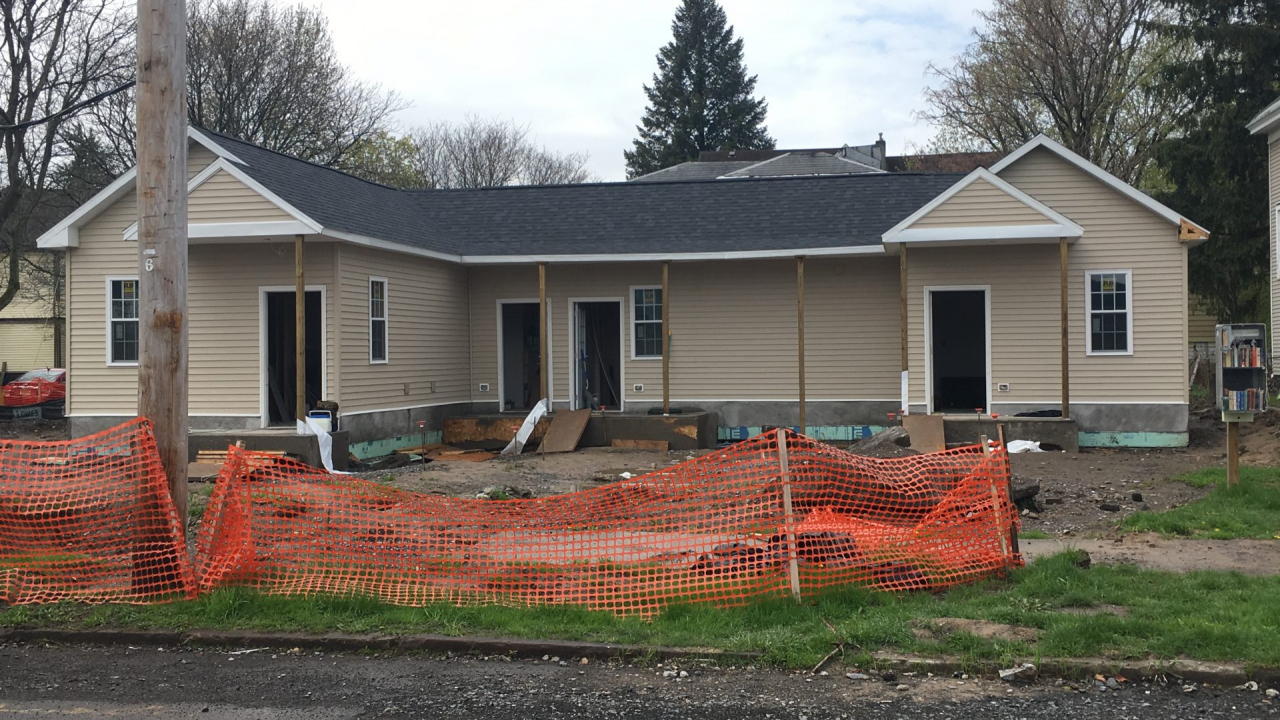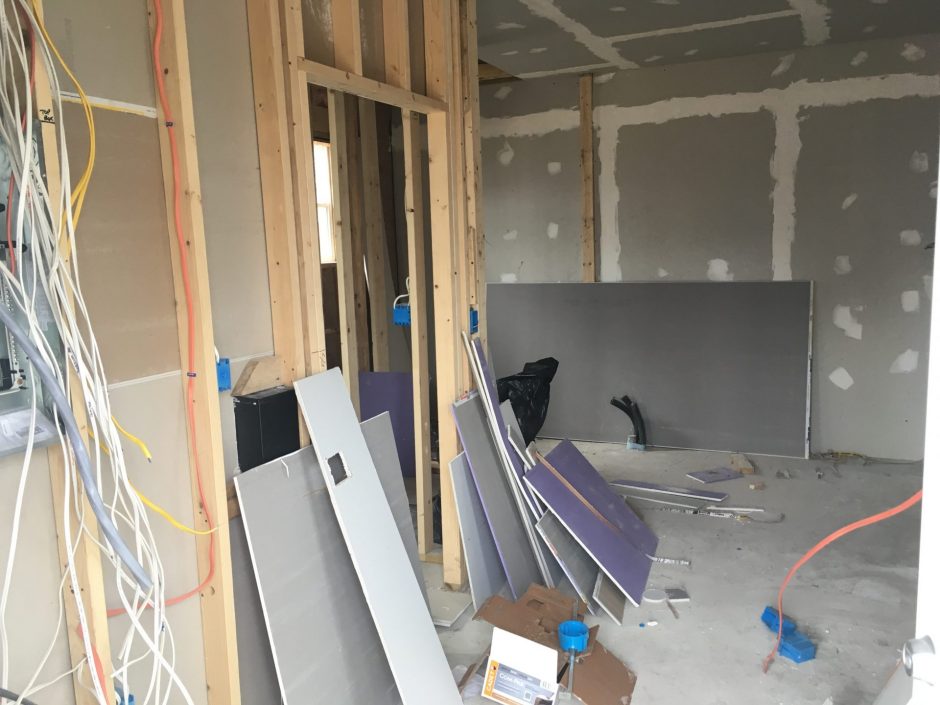
SYRACUSE, N.Y. (NCC News) — By the end of 2019, A Tiny Home For Good plans to build more than twenty tiny homes inside of Syracuse’s city limits. Founded in 2015 by current Executive Director Andrew Lunetta, the organization has grown into a force fighting against homelessness in the Salt City.
“When I look at our houses, I look at how long some of our residents have been there and 2.5 years, it’s not a long time but for guys facing homelessness it’s an incredibly long time,” Lunetta said. “So every day that there’s more and more stability, more and more consistency, it just gets better and better.”
Initially Lunetta was involved with every step of the process, from coordinating with contractors, plumbers, and electricians, to the painting, roofing, and dry-wall, and to this day, still is. However, before founding A Tiny Home, he didn’t know much about construction.
“I had very limited experience building coming into it,” Lunetta said. “I had done painting projects and very light framing but so much of it was learning on the job, learning through YouTube asking people who knew more than me, coming in very humble.”

What he didn’t know about building, he supplemented with his in-depth knowledge of homelessness in Syracuse. He started volunteering his time at the Oxford Street Inn when he was an undergrad at Le Moyne College and was offered a full-time spot staff on as a sophomore. He says that speaking with people who face homelessness was comfortable for him.
While Lunetta was in graduate school at Syracuse University, the idea behind A Tiny Home For Good began to solidify. Four years later, what was once an idea has grown into an organization that’s attracted the attention of many, including the county government. Earlier this month, County Executive Ryan McMahon revealed that Onondaga County will be giving a grant to A Tiny Home For Good to build seven new houses in Syracuse.
Lunetta said that from the county’s perspective, tiny homes makes sense.
“Yeah, it’s just nice to see the county recognize that it’s an answer to end homelessness,” Lunetta said. “Because really, they’re footing the bill of the shelters and a lot of the people having to stay in hotels if the shelters are full.”
Permitting and construction have already started on two of the seven new houses.




